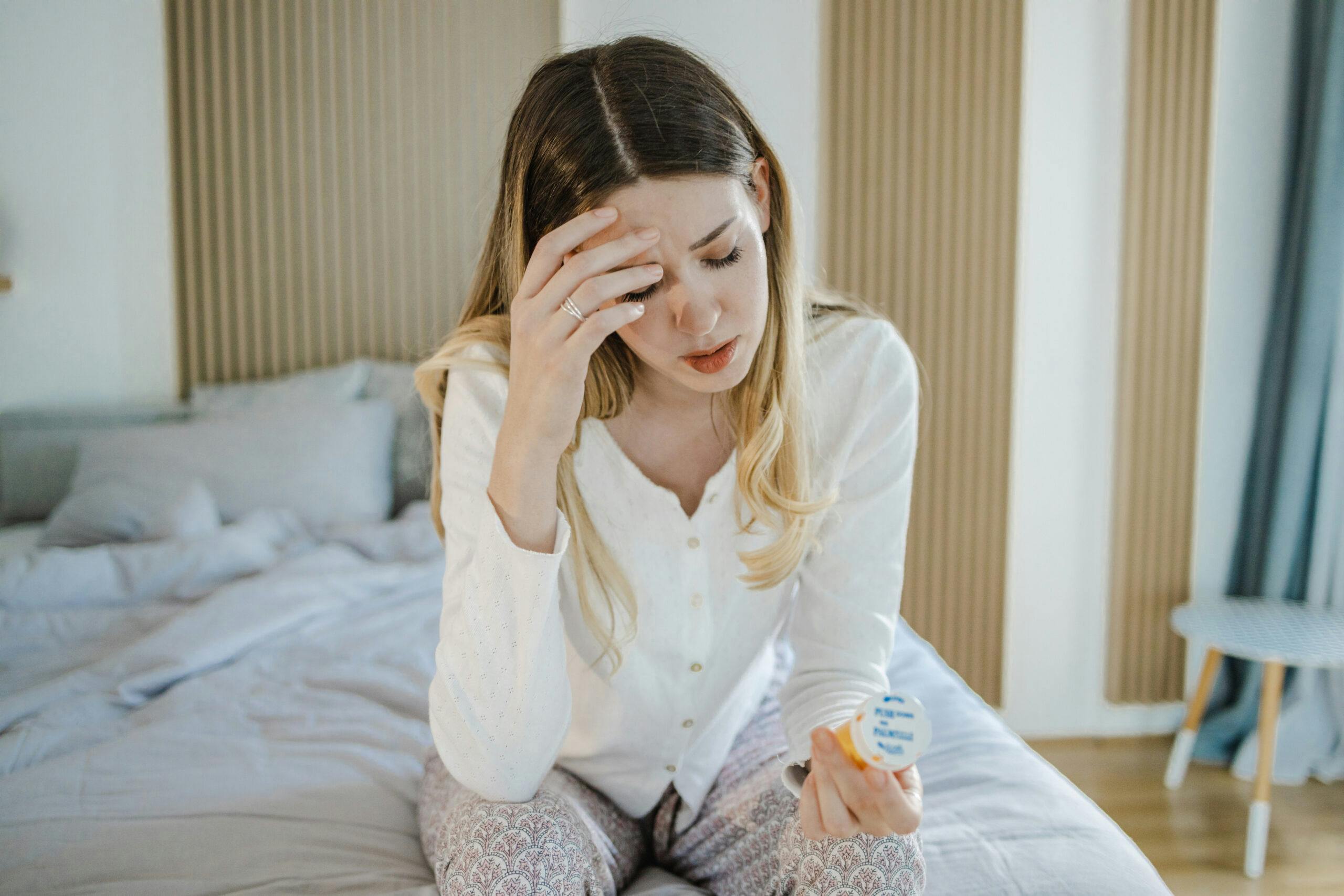Valium Sleep Effects
Valium is the brand name of the generic medication diazepam. Diazepam is a benzodiazepine often prescribed for individuals suffering from anxiety and sleep problems. However, while Valium can help those with sleep disorders get better sleep when taken under medical supervision, it can lead to adverse sleep-related side effects, especially when misused.
Whether an individual is taking Valium in an attempt to self-medicate for sleep disorders or if they are taking it recreationally for other reasons, the effect of diazepam on the central nervous system can lead to a number of adverse side effects that can impact the quality of sleep and quality of life.
Are you or a loved one experiencing trouble sleeping or other symptoms of potential substance abuse? The friendly and experienced team at Zinnia Health can help. Call our helpline anytime at (855) 430-9439 for more information.

How Does Valium Work?
In the medical world, Valium is prescribed to treat various sleep problems. However, taking it in high doses or mixing it with other substances (as recreational users often do) can lead to unexpected sleep-related side effects.
The reason Valium can cause sleep problems is because it directly interacts with a chemical in the brain known as GABA or gamma-aminobutyric acid. When GABA interacts with nerves in the brain, it induces a calming effect.
When Valium locks onto the GABA receptors in the brain, it changes shape to allow GABA to bind to it better. In turn, Valium can improve the effects of GABA and lead to a stronger calming effect than if an individual did not take the drug.
Small, controlled doses like those prescribed by a physician mean Valium can improve sleep quality. However, taking too much Valium or taking it at the wrong time can lead to adverse effects on sleep.
What Sleep Problems Does Valium Cause?
Interestingly, while Valium has a sedative effect, long-term use can also lead to sleep disturbances such as insomnia, which means trouble sleeping. This is because taking Valium for long periods and/or in high doses can make GABA less effective as a neurotransmitter, requiring more GABA to get to sleep.
While carefully managed doses of Valium can improve sleep, those who misuse Valium often experience side effects such as:
- Drowsiness
- Sleepiness throughout the day
- Faster sleep onset, even when not lying down
- Reduced cognitive function
- Trouble concentrating
- Difficulty staying awake
Are Sleep Problems Caused by Valium Dangerous?
Over time, taking Valium can lead to sleep deprivation, which is a dangerous condition that can impact your physical and psychological health. When sleep-deprived, you’ll feel tired throughout the day, and you’ll notice changes in your mood, appetite, and cognitive function.
Meanwhile, since Valium can make it harder to go to sleep, you may find yourself with erratic sleeping patterns or falling asleep accidentally. This side effect can also be extremely dangerous, especially if it leads you to fall asleep in class, at work, or even behind the wheel.
This danger is amplified by common side effects like lightheadedness and muscle weakness, which can lead to collapse and trouble waking.
The sleep problems caused by Valium can worsen depression, mood, and anxiety disorders as it impacts the circadian rhythm (the sleep/wake cycle) and contributes to side effects such as reduced alertness, productivity, and motivation.
In short, the sleep problems caused by Valium can lead to long-term health risks, so it’s important to learn how to cope with them.
Valium addiction shouldn’t be ignored. If you or a loved one are currently using Valium, Zinnia Health can help. Call our helpline anytime at (855) 430-9439 for information on the next steps.
Coping With Sleep Problems Caused by Valium
If you’re experiencing trouble sleeping due to Valium, you might reach for an over-the-counter sleeping pill or supplement like melatonin to help you cope. However, before taking any sleeping pill with Valium, you should ask your doctor for advice as there may be interactions. Instead of additional medications, they may recommend alternative methods to help you sleep better.
According to the CDC, you can improve the quality of your sleep by practicing better sleep hygiene. Some ways to promote better sleep include:
- Napping early in the day when you feel you need to catch up on sleep, but avoiding naps in the hours leading up to bedtime.
- Avoiding caffeine and other stimulants, especially in the latter part of the day.
- Getting more physical exercise throughout the day to help make your body tired. You might also try brain exercises to calm your mind, especially at night.
- Creating a bedtime routine that helps you wind down, especially one without screens or a lot of physical activity.
- Getting in the habit of going to bed and waking up at a consistent time each day.
Ultimately, the only way to completely stop drug-related sleeping problems is to quit taking the drug. However, in the case of Valium, it’s dangerous to quit “cold turkey” as the withdrawal effects can be intense. It’s even more dangerous for individuals taking other substances, including antidepressants.
Suddenly quitting Valium can lead to sleep disturbances, changes in mood, and intense drug cravings, among other side effects. So, if you’re trying to quit Valium, it’s important to get help.
How Zinnia Health Can Help
In clinical trials, Valium proved effective for helping insomniacs and those suffering from other sleep disorders get better sleep. However, when not used and managed properly, Valium can lead to a number of health risks, including sleepiness, collapse, worsening depression, and allergic reactions. That’s why getting help from the right team is essential.
If you or a loved one suffer from Valium addiction, our team at Zinnia Health is standing by to help.
Call our helpline at (855) 430-9439 to talk to our caring staff.
Related Articles

